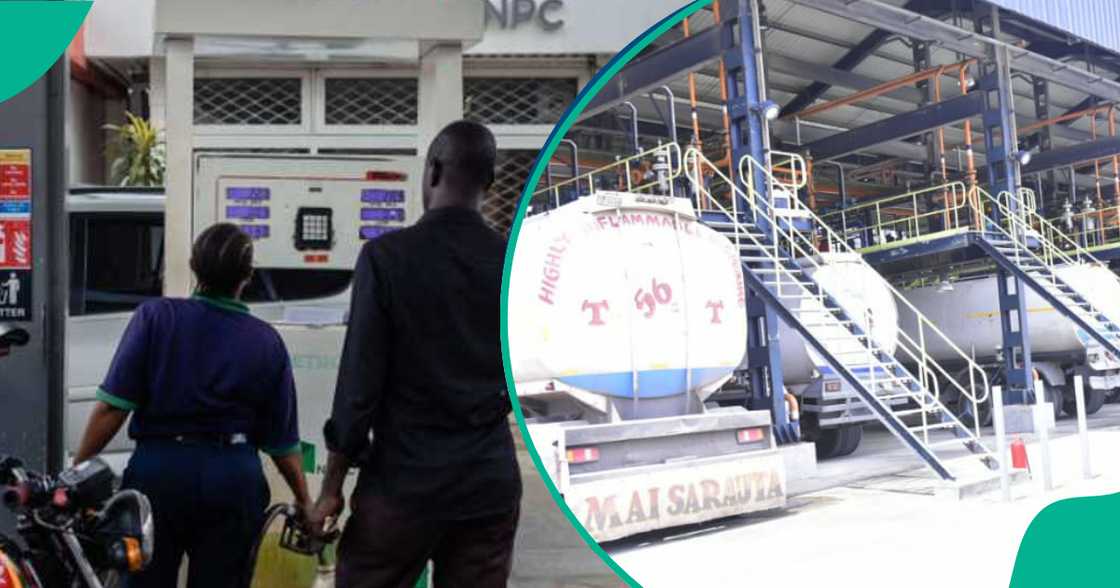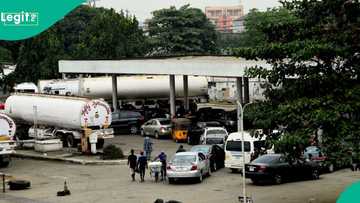Dangote Group Releases 4 Easy Steps To Become Its Salt Distributor
- Dangote Group, through its subsidiary NASCON, has launched a 4-step process to become its salt product distributor in Nigeria
- The company said the new distributors are onboarded via a mobile DMS platform after registration
- Dangote Sugar is one of the popular brands of salt in Nigeria and is designed for home use as well as Dangote Classic Seasoning
Legit.ng journalist Dave Ibemere has over a decade of business journalism experience with in-depth knowledge of the Nigerian economy, stocks, and general market trends.
The Dangote Group, through its subsidiary NASCON Allied Industries Plc, has announced a simplified four-step process for Nigerians to become distributors of Dangote Salt and earn income through commercial engagement.

Source: UGC
The initiative is part of the company’s ongoing efforts to expand its distribution network across the country and empower small and medium-scale entrepreneurs with a steady source of income.
According to the company, interested individuals or businesses can begin the registration process by sending an email to nasconcare@dangote.com or calling any of the dedicated support lines.
Applicants will receive a distributor form, which must be completed with relevant documents, including a letter of intent and Corporate Affairs Commission (CAC) registration details.
Once registration is approved, new distributors will be issued a unique code and onboarded to the company’s Distributor Management System (DMS), accessible via mobile devices.
Distributors can then start placing orders through the platform after making payments via the Integrated Sales Order Processing (ISOP) system at any of Dangote’s designated partner banks.
NASCON listed a variety of available products, including edible salt in multiple pack sizes (250g, 500g, 1kg, 20kg, 50kg), kitchen and coarse salt, PDV salt, and the Dangote Classic Seasoning.

Source: Getty Images
Steps to become a distributor of Dangote petrol
Similarly, Dangote released steps for Nigerians looking to become partners with its refinery as petroleum product distributors.
According to the Dangote Group, businesses and individuals must follow a simple four-step process to become official distributors of its petroleum products across Nigeria.
In a statement, the company said the first step is to initiate the process by sending an email to groupcommercialops@dangote.com to express interest in distributorship.
Dangote Refinery stated that upon successful contact, prospective distributors will proceed to the registration stage, where they will be issued a Dangote Refinery registration PIN.
Approved applicants will also receive a notification regarding signing a notarised Non-Disclosure Agreement (NDA) to ensure the confidentiality of commercial engagements.
After completing the registration, applicants are required to provide the necessary documentation and meet specific compliance requirements outlined by the company.
Once all documents are verified and requirements are fulfilled, successful applicants will be issued an official appointment letter.
This letter will enable them to begin placing product orders and commence full commercial engagement with Dangote Refinery.
Dangote Refinery now an economic powerhouse
Aliko Dangote’s $19 billion refinery was meant to be Nigeria’s game-changer in the petroleum sector, but its journey to launch was far from smooth.
The Nigerian National Petroleum Company (NNPC) initially hesitated to supply crude, prioritising its own refineries despite their inefficiencies.

Read also
More money for Dangote as billionaire set to acquire tours company in another African country
Negotiations dragged on, with the NNPC insisting on pricing and supply terms that delayed operations.
The Nigerian Midstream and Downstream Petroleum Regulatory Authority (NMDPRA) also posed hurdles.
Regulatory bottlenecks, licensing delays, and compliance issues slowed progress. At a point, Farouk Ahmed, NMDPRA boss, claimed that local refineries, including the Dangote Refinery, produce inferior products compared to imported ones.
Fuel marketers, on the other hand, worried the refinery’s dominance could disrupt existing distribution networks, adding another layer of contention.
Despite these setbacks, the refinery finally commenced operations, and its impact has been profound. Nigeria, once heavily dependent on imported fuel, now sees reduced forex spending on refined products.
Fuel scarcity has eased, and local industries benefit from a steady petroleum supply. The refinery also creates thousands of jobs, boosting economic activity across multiple sectors.
Now, with the refinery refining over 300,000 barrels per day, Nigeria moves closer to energy self-sufficiency.
The once-contentious project now stands as a beacon of industrial success, proving that overcoming bureaucratic and structural hurdles can unlock immense national growth.
Dangote Refinery partner stations reduce petrol prices again
Earlier, Legit.ng reported that filling stations selling Dangote petrol have lowered fuel prices again after the Nigerian National Petroleum Company Limited (NNPC) announced a new price.
Legit.ng earlier reported that NNPC’s petrol prices were cheaper than Dangote's petrol after the state oil firm released its prices for various regions.
The article was updated with additional information by the head of the business desk, Victor Enengedi.
Source: Legit.ng





